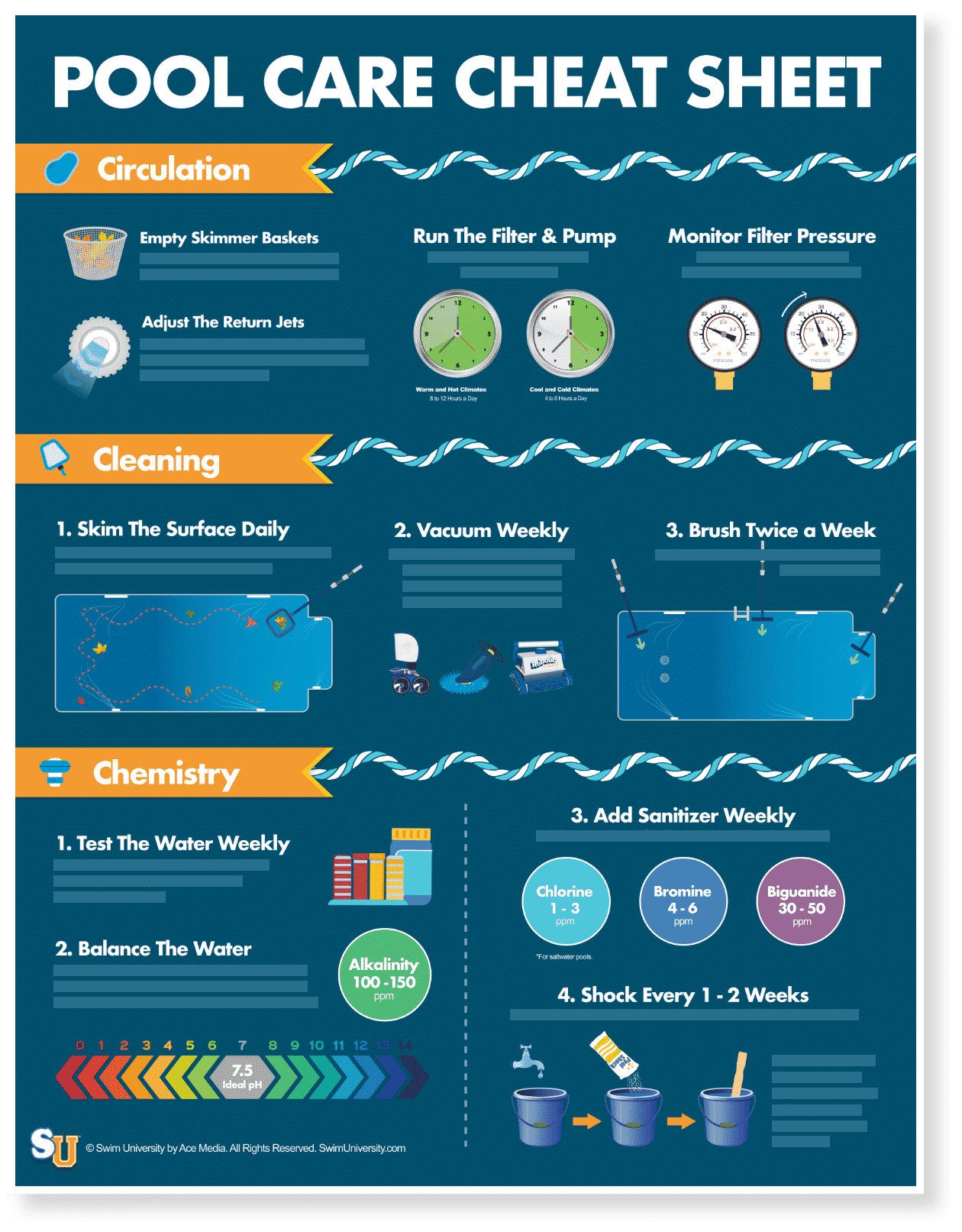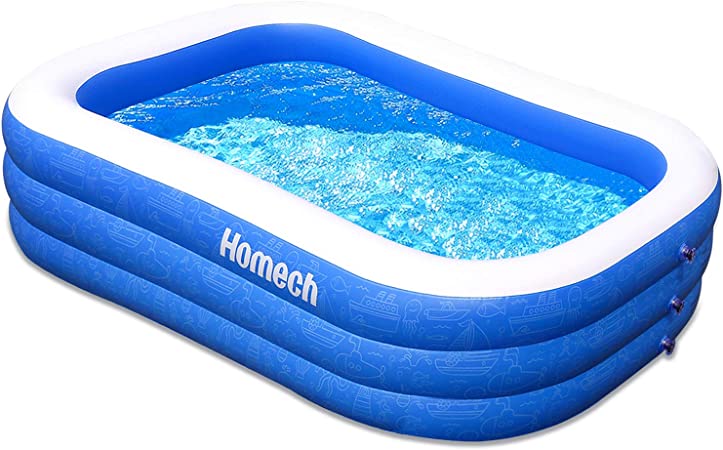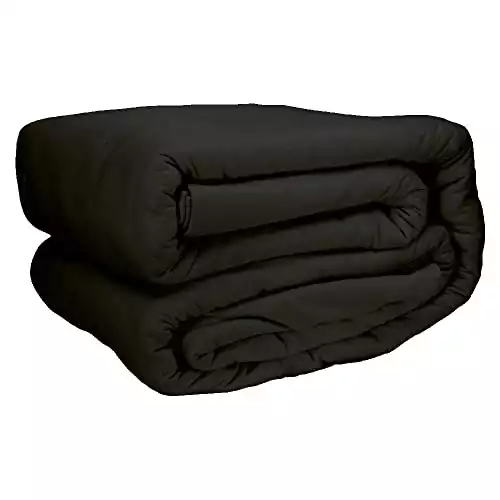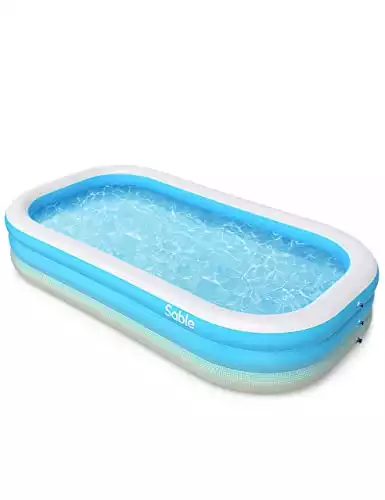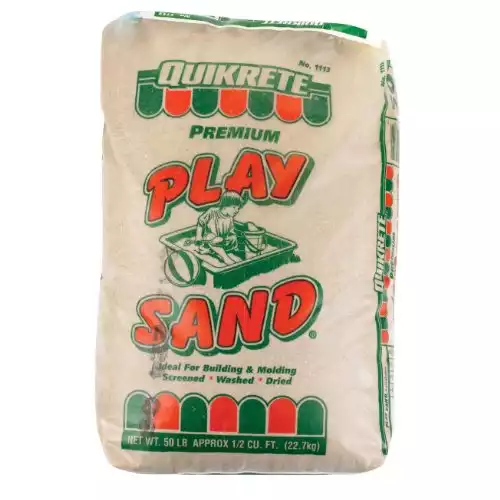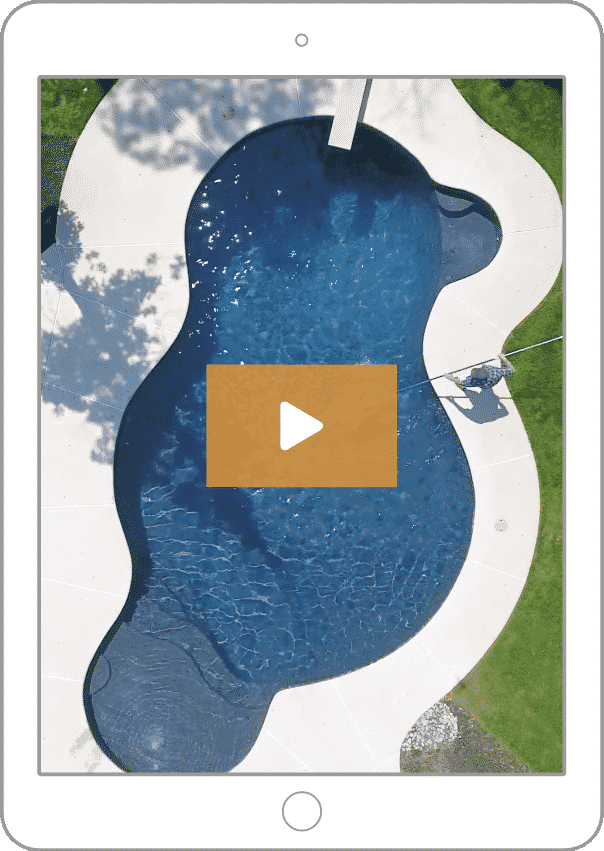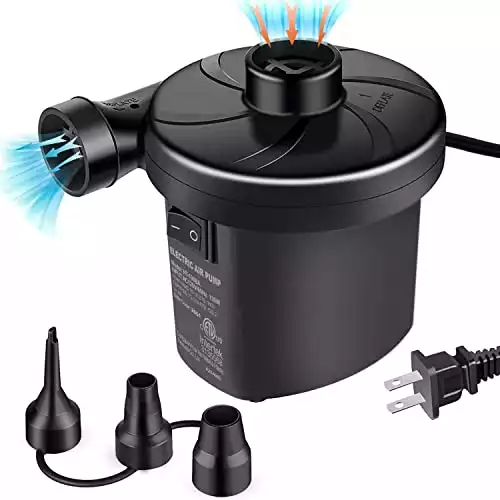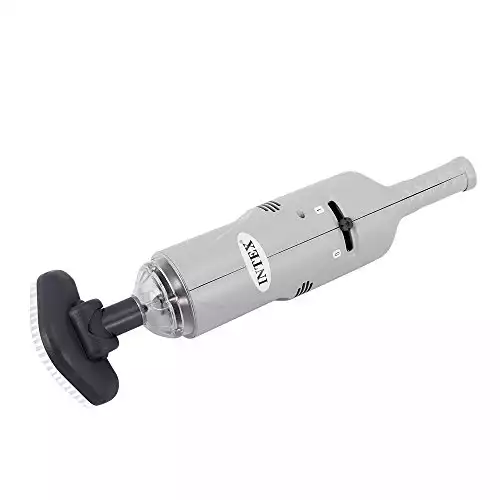You don’t have an inground pool, and above ground pools can be expensive. Or maybe you rent your home, and your landlord doesn’t want a big above ground pool ruining the grass underneath it. Understandable, but frustrating when all you want to do is cool off under the hot sun.
Before you resign yourself to jumping through the sprinkler or hoping for rain, you have another option—an inflatable pool. No, really. We’re not talking about the tiny ones made for kids and babies that you could blow up like a balloon. We mean modern inflatable pools that are bigger, better, and one of the best ways to turn your back yard into the coolest summer spot on the block.
Before You Buy an Inflatable Pool …
… you do need to make some preparations. While it won’t be as expensive as its inground and above ground cousins, you’ll still be spending money on it, and you’ll want to protect your investment. The inflatable pools of today aren’t disposable. With proper care, one could last several summers, giving you lots of fun and saving you money on repairs and replacements.
Check Your City’s Ordinances
Building an inground pool would require that you get a permit before construction began. Putting up an above ground pool may also require a permit, or at least that the pool meets certain size specifications.
Some cities may still see an inflatable pool as an above ground pool, and may apply the same rules to it. Before you spend the money on it, and on filling it, make sure you won’t have to take it down later, or possibly be fined.
Check with Your Homeowners Association
If you live in a neighborhood that has a Homeowners Association (HOA), you may be subject to rules or covenants laid out by that organization, regardless of what city ordinances say. The last thing you want is to get into a legal fight over a simple inflatable pool in your back yard.
Even if you’re renting your home, you’ll still have to follow the HOA’s rules. Otherwise, you risk getting your landlord into trouble, and then you could be fighting over a pool on two fronts. All of that can be avoided with one or two phone calls or emails. It’s worth the time.
Check with Your Landlord
Even if your neighborhood’s HOA allows inflatable pools, your landlord may still not want one on their property. If it’s placed in the grass, it could damage the lawn. And if your deck isn’t properly reinforced, an inflatable pool could be too heavy for it, and could damage the deck, not to mention, possibly cause injury.
In addition, your landlord’s homeowner’s insurance may have clauses about pools on the property, and violating them could cause your landlord’s premiums to go up, or could cause them to lose their insurance altogether.
If something you do on your landlord’s property costs them money, they may require you to cover those costs. Or, they may invoke the termination clause in your lease. Over an inflatable pool? No, not directly. Over them having to pay money and deal with the hassles of an insurance company that doesn’t want to insure a property with additional risks.
Ask before you buy and put up any kind of pool, including an inflatable one. You’ll be protecting your relationship with your landlord, which is especially important if you plan to live there for a while.
Prepare a Space
The biggest question you’ll have about getting an inflatable pool (after size, shape, and cost) will be where to put it.
Patio
The advantage to putting the pool on your back patio—if it’s large enough—is that it’s a level surface. At least, it should be. This means you won’t have to worry about water spilling out, or the pool gradually dipping into a soft spot in the lawn.
The disadvantage is that the patio is made of concrete. Hard concrete. That’s not the most comfortable surface to be on when you’re trying to splash around, or even just sit in the cool water. Not only that, but you also run the risk of damaging the bottom of the pool on the hard, scratchy concrete.
A regular plastic tarp will be enough to protect the pool from damage, but it won’t provide any cushioning. For that, look for a pool liner pad.
Deck
You may be able to put your inflatable pool on your deck. Maybe. This would be better for smaller pools, but even then, the most important consideration is whether the deck can withstand the weight of all that water.
Important: We’re not engineers, so we’re going to recommend that before you put an inflatable pool on your deck, you consult with an engineer. They’ll either tell you not to do it because it’s too dangerous, or they may be able to reinforce the deck for you, if that’s what you want to do. But it’s imperative that you seek advice from a professional. We can’t stress that enough.
Yard
The patio is best for being a level surface. But putting your inflatable pool out in the yard means the sun will warm up the water a little, making it more comfortable than it would be sitting in the shade all day.
The trick is to find a level spot. Or, if your yard doesn’t have one, you can create one with a few tools like a shovel and a 2 x 4 to level the ground.
The easiest option, though, is to build a small sand-filled spot for the pool.
- Create a walled-in area on the ground with bricks, landscape edging, or anything that will keep sand in place.
- Fill it with sand; the type used for sand boxes is best.
- Level it with a 2 x 4 or other instrument to create a flat surface.
- Place a tarp over the sand to prevent it from scratching and damaging the bottom of the pool.
- Place the pool on the tarp and inflate it.
- Fill the pool with water.
- Enjoy!
The other benefit of sand over grass is it’s softer, and you won’t have to worry about any sticks or other debris damaging the bottom of the pool.
Make sure you’re taking care of your inflatable pool so it lasts more than just one summer. Our fully illustrated Pool Care Handbook and Video Course can help!
Frustrated by adding chemicals and trying to keep your pool clear all the time?
We cut out all the confusion of pool maintenance in this easy-to-read illustrated ebook and video course. It'll help you save $100 right away on pool care!
Click Here to Learn MoreGet an Air Pump
Look, working out is great, and you want to keep your lungs healthy, but trying to blow up inflatable pools manually isn’t the best idea. You’ll pass out before it’s even risen a few inches off the ground. Get an air pump instead.
You could get one of those kinds you pump with your foot, but again, that’s an awful lot of work. Why do that when you could just get an electric air pump that will do all the heavy breathing for you? Just don’t use it to make obscene phone calls. We can’t condone that.
Keep the Water Clean
Just because it’s not as permanent a pool as an inground or above ground type, don’t think you don’t have to take care of the water.
If your round inflatable pool measures 2 feet high by 12 feet in diameter, it holds roughly 1,700 gallons of water. You’re not going to be emptying and refilling it once a week. That’s a lot of work, not to mention quite a bump on your water bill. So if you want to use the pool all summer, you’ll need to use a sanitizer and keep the water balanced.
Use a pool calculator to figure out how much water your pool holds. Then use that information for the pool chemistry to make sure you use enough sanitizer, and that other levels such as alkalinity and pH stay balanced as well.
You’ll also want to keep a leaf skimmer on hand to scoop out leaves, twigs, bugs, and any other small debris that falls into the water.
What about dirt that accumulates on the bottom of the pool? No problem. Get a handheld vacuum that’s made to be gentle on vinyl surfaces.
This vacuum's rechargeable batteries provide ongoing, powerful suction capability. Suitable for use with most hot tubs and above-ground pools up to 18 feet in diameter.
Inflatable Pools Are Blowing Up!
So what if you don’t have a big inground or above ground pool like the neighbors? You also won’t be spending as much money as they do to maintain those bigger pools, and you’ll be just as cool. Maybe even cooler.
Happy Swimming!

Recommended Guides
Don't miss out on cool summer fun. Above ground pools are affordable, easy to assemble, and easy to maintain. Learn what to get, and you're all set!
Are you ready to get your hands dirty? Then roll up those sleeves and see what a difference pool landscaping can make to your back yard and your wallet.
You don't need to go to your local water park to ride a pool slide, especially once you learn how to select the perfect addition to your own inground pool
Spa area looking a little dull and barren? Time to do some hot tub landscaping. It'll look better, provide other benefits, and even save you money.
